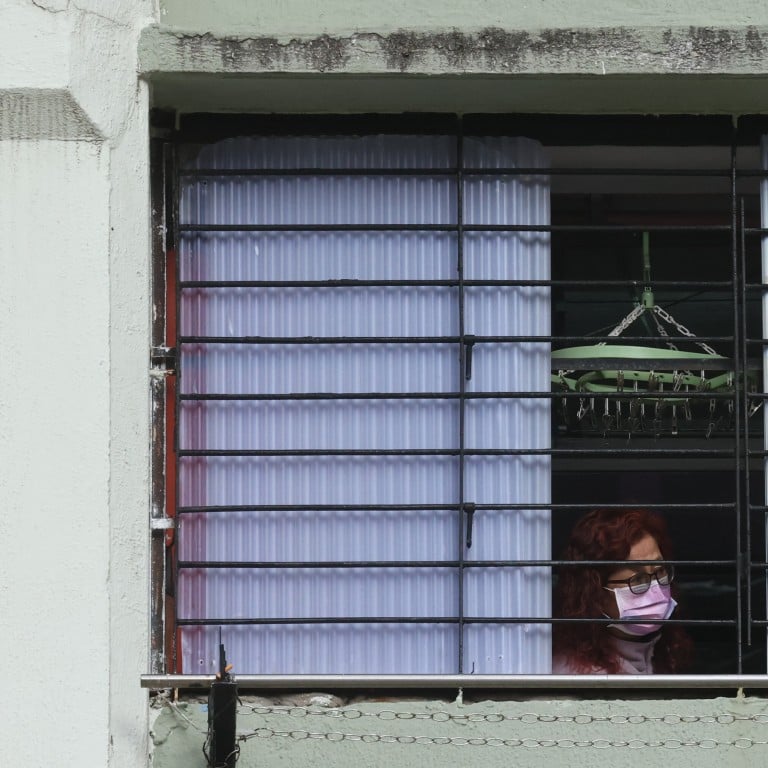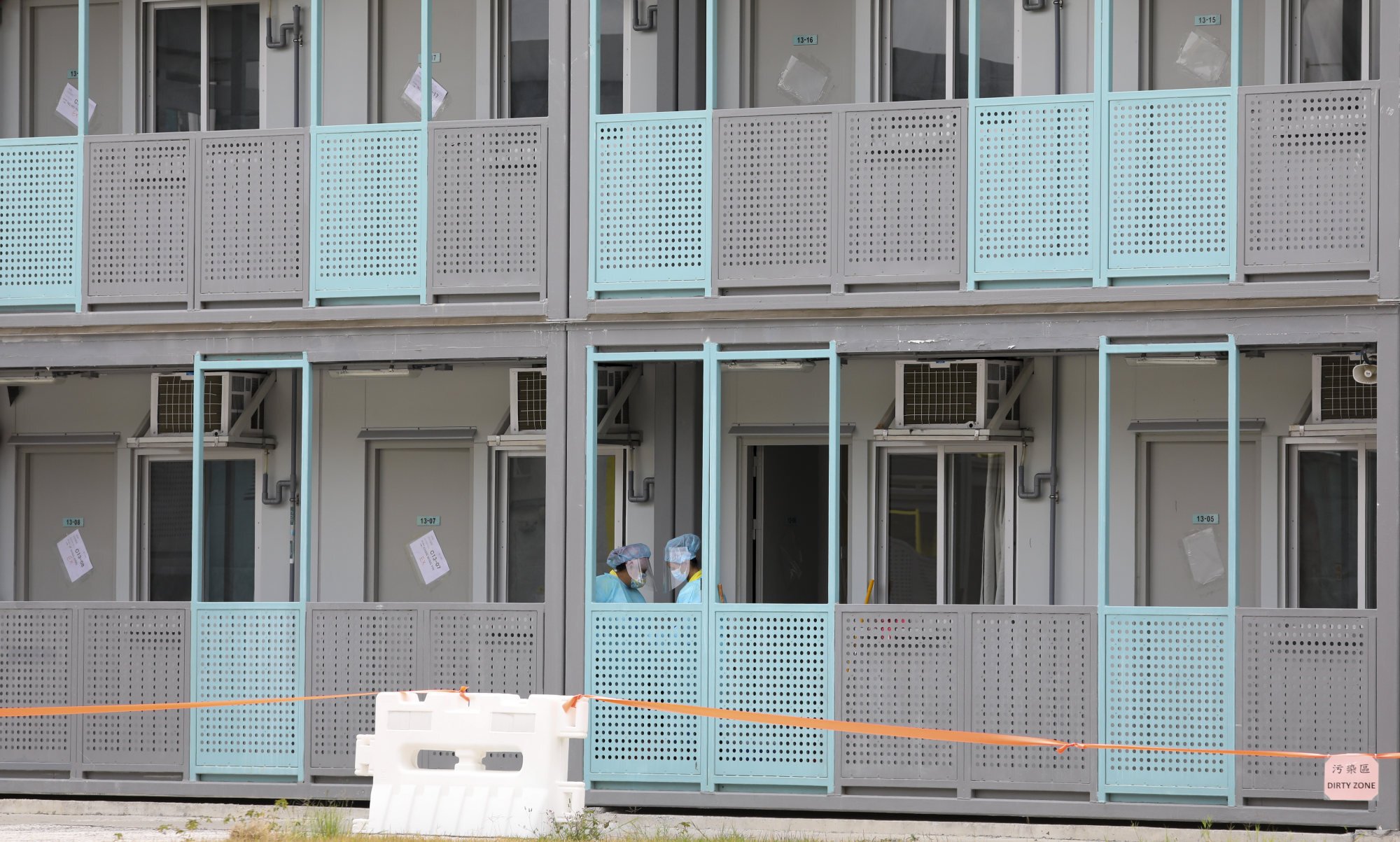
Explainer | Coronavirus Hong Kong: who is eligible for home quarantine and how does it work? All you need to know about the new isolation rules for close contacts
- Close contacts of Covid-19 patients will now be allowed to quarantine at home under certain circumstances and after undergoing an assessment
- Authorities to check if person’s home is suitable for quarantine, including whether they live in a subdivided flat or have shared kitchens and bathrooms
Many such facilities are reaching their maximum capacity amid an exponential surge of infections, and a government quarantine camp at Penny’s Bay, originally used just to isolate close contacts of carriers, has now started admitting patients with mild or no symptoms.
Here is what you need to know about the extended “Stay Home Safe” scheme.
Hong Kong imposes toughest Covid curbs yet, new rules on family get-togethers
Who is eligible for home isolation?
Close contacts of the patient and secondary contacts – usually family members of close contacts – are subject to home isolation under certain circumstances.
The authorities will assess if the person’s home is suitable for quarantine, including whether he or she lives in a subdivided flat or must share a kitchen and toilet with others.
Residents’ health will also be examined. Close contacts who are elderly, pregnant, suffer from chronic diseases, are unvaccinated or are incapable of taking care of themselves could be deemed unsuitable for home isolation.
Those with special needs will be sent to quarantine facilities. Patients who test positive for Covid-19 are not allowed isolate at home at this stage.
However, Hospital Authority chief manager Dr Lau Ka-hin said on Sunday that in the event of an “exponential” surge in infections – for example, if more than 1,000 new cases were detected – asymptomatic patients or those with mild symptoms could be allowed to isolate at home.
How long will home isolation last?
Close contacts of Covid-19 patients have to isolate for 14 days. Secondary contacts are only required to quarantine for four days, as they pose a relatively lower risk than close contacts. However, the quarantine period will be extended to 14 days if a family member tests positive.

How does home surveillance work?
Authorities said home isolation arrangements required cooperation and self-discipline from the public.
Officers will visit the homes of isolated residents to give them an electronic wristband with a tracking app to be installed on a smartphone. Residents will also be given Covid-19 rapid test kits and a thermometer.
The app will detect and analyse communication signals, such as Bluetooth and Wi-fi in the neighbourhood. It will then record any detected changes in the signals.
Residents are reminded not to soak the wristband in water for too long when taking a shower. Authorities said the app would not read any information in the smartphone and signal detection would not involve collection of personal data.
Authorities will take further action if residents leave their home during the quarantine period, including conducting spot checks, launching prosecution or even issuing an arrest warrant.
What are residents required to do at home?
Residents are required to monitor their body temperature twice a day and physical conditions regularly. If they test positive or feel unwell, they should contact authorities immediately and will be admitted to hospital for testing and treatment.
They should also conduct a rapid antigen test (RAT) on specified days during the quarantine period. A photo has to be taken of the test result.
For residents undergoing the 14-day home quarantine, they have to go to a community testing centre to get a Covid-19 nucleic acid test on day 12.
A 24-hour hotline at 1833 019 will be available for assistance starting February 10.
Can residents leave their homes?
Quarantined residents are allowed to order food and groceries, but they must wear face masks when they open the door and avoid making contact with the delivery person.
Centre for Health Protection controller Edwin Tsui Lok-kin said on Monday that the risk of transmission was low as the door would only be open for a short amount of time for residents to take their packages.
Authorities have provided guidelines for online shopping and to delivery companies on non-face-to-face delivery, reminding them to avoid cash transactions and place the items outside residents’ doors.
Residents can only take out the trash when they test negative for Covid-19. They must wear a mask and close the door when leaving their homes. Dustbins can be disposed as general waste as long as they are properly wrapped.
Stick with ‘dynamic zero-Covid’ policy or face disaster, Hong Kong told
Are isolated residents an infection risk for their neighbours?
Health experts said the infection risk was relatively low if residents observed the isolation rules.
Neighbours can find out if there are isolated residents in their building by checking a government website or through notices posted by their management companies. But details about the isolated units will not be made public due to privacy concerns.
Property management companies are reminded to update the information regularly and arrange additional cleaning and disinfection for the buildings involved.

